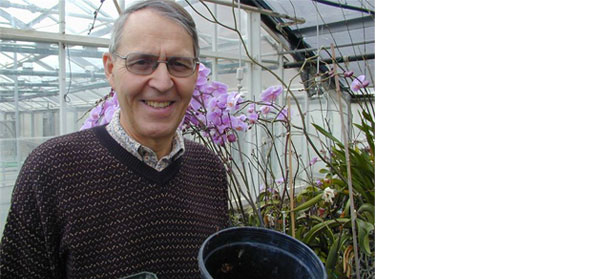
Jul 23, 2012Orzolek stepping down from Penn State duties
After more than three decades as a professor of vegetable crops at Pennsylvania State University, Mike Orzolek has retired.
Not that he’ll stop completely. Orzolek will still do some fieldwork, and will continue to interact with growers, he said.
Now 68, Orzolek grew up in Watertown, N.Y. His parents weren’t farmers, but he spent part of his teen years working on his grandparents’ farm in Massachusetts. He also weeded a few acres of gladiolas for an aunt.
“That was a chore,” he said.
After earning a bachelor’s degree in biology from Alliance College in Pennsylvania (which no longer exists), he earned a master’s degree in horticulture from West Virginia University. Teaching biology at a community college from 1969 to 1971, Orzolek decided that wasn’t what he wanted to do for the rest of his life. He ended up earning a doctorate in horticulture at University of Maryland.
As a faculty research assistant at the University of Maryland, he split his time between the main campus and a research facility in Salisbury, Md., studying horticulture, weed science, Integrated Pest Management and other topics under several knowledgeable teachers. One of his mentors was Fred Angell, a tomato breeder who actively sought ideas from growers. Angell would ask growers what traits they were looking for and use that knowledge in his breeding work, Orzolek said.
In 1974, Orzolek was hired to be an Extension specialist at the University of Delaware. For seven years, he worked at the research station in Georgetown, Del. He helped them organize the Vegetable Growers Association of Delaware in the mid-1970s.
In 1981, Penn State offered Orzolek a position as a professor of vegetable crops and he’s worked in Pennsylvania since. In his first decade there, he mostly did Extension work and research. In the 1990s, he started teaching a vegetable production course to undergraduates, which he only stopped doing in the last couple of years, he said.
Around 1996, Orzolek and William Lamont, another professor of vegetable crops, decided Pennsylvania needed its own plasticulture research facility. They erected 12 high tunnels at the research farm in Rock Springs, Pa. Today, there are some 40 tunnels at that facility, he said.
The researchers also erected 12 tunnels throughout several counties, either at Extension facilities or cooperating farms, Orzolek said.
Orzolek has spent the last few years searching for crops that can give growers consistent economic returns — that pay for the time and expense of growing under plastic. A crop like tomatoes will pay off sometimes, but not others. Crops like ginger, figs and watercress, on the other hand, can make Pennsylvania growers a profit under plastic, he said.
The use of plastic has definitely increased among the state’s growers. Orzolek and Lamont are two of the more widely known plasticulture researchers out there. Besides crop comparisons, Orzolek’s research also has made high tunnels easier to construct and more user friendly for growers, said William Troxell, executive secretary of the Pennsylvania Vegetable Growers Association.
Orzolek was heavily involved in the development of the Simply Sweet onion. His research helped narrow the usable varieties, and he also helped develop a marketing plan for the trademark brand of sweet onion, Troxell said.
Orzolek has been instrumental in developing the vegetable education program at the annual Mid-Atlantic Fruit & Vegetable Convention, Troxell said.
Orzolek has noticed a major shift over the years, from wholesale to local, direct sales. The “buy local” movement has paved the way for a growing number of farm markets, farmers’ markets, roadside stands, Amish produce auctions and other retail outlets. Today, about three-quarters of Pennsylvania’s vegetables are sold retail, the rest wholesale. Two or three decades ago, that ratio was closer to 50/50, he said.
“People want local and fresh,” Orzolek said. “That’s really benefited not just Pennsylvania, but the whole U.S.”
Growers who sell direct can do extremely well – as long as they can handle face-to-face encounters with consumers. It helps to be a people person, he said.
Pennsylvania farmers can grow just about any crop consumers request these days. A grower in the western part of the state recently gave a talk on rhubarb production. That wouldn’t have happened 10 years ago, Orzolek said.
He appreciates the role the media pas played in spreading information about agriculture.
“The media gets the word out about what’s important,” Orzolek said. “If it wasn’t for you guys, we’d be back in the Dark Ages.”
Orzolek has been married to his wife, Judy, for 42 years. They have three daughters, who live in Boston, New Orleans and Golden, Colo.
none
















